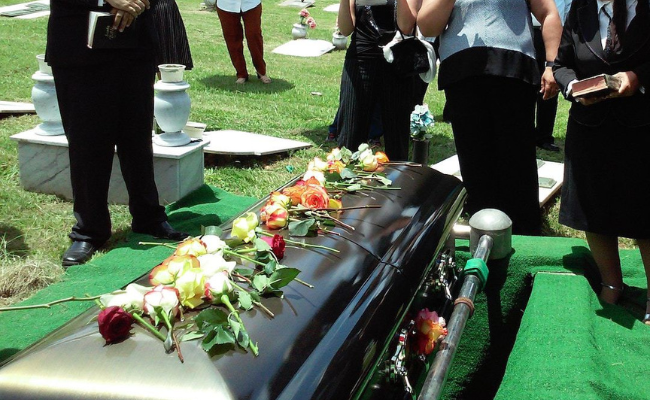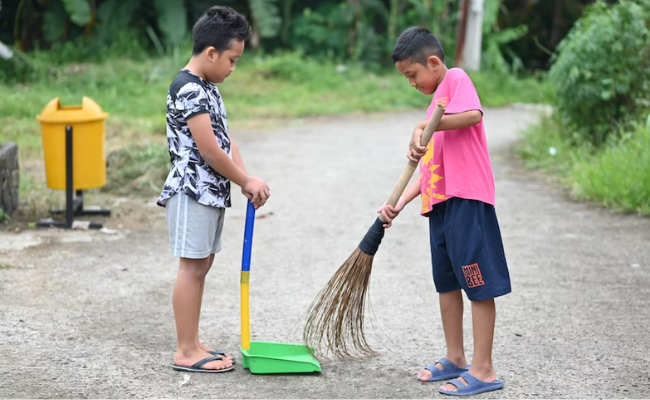A beginner’s guide to Filipino superstitions: Funeral edition

Filipino superstitions apply to all major life events—and beyond. Here are just a few superstitions that apply to when someone passes | Photo by Rhodi Lopez on Unsplash
Filipino superstitions can be a big deal. No matter what belief system people adhere to and where they live, Filipinos can be an awfully superstitious bunch. All sorts of beliefs and practices have been passed down since time immemorial. Some of them are still practiced widely today—and some of us may not even know they’re superstitions to begin with.
There are all sorts of superstitions people practice in daily life, but the more important superstitions (that can be a big deal for the older generation) usually pertain to big life events. Births, weddings, birthdays, and certain holidays have important practices tied to them—and those practices don’t just stop when someone’s passed.
Superstitions surrounding death are especially interesting and commonly practiced by Filipinos around the world. Even during pre-Hispanic times, our ancestors have already cultivated their own set of beliefs. Those beliefs have ended up blending into the Christian narrative the Spaniards introduced, which makes for some pretty interesting superstitions.
Here are a few interesting Filipino superstitions surrounding death that are still practiced today.
No going straight home

Convenience stores are usually where people pagpag before heading home
Pagpag is the practice of making a short pit stop before going home after a wake. The belief is that this will confuse any spirits who are trying to make their way home with you. For the younger generation (or less superstitious people), it can also be a good way to decompress with others before heading home.
No leaving the recently passed alone
It’s common practice for some people to stay with the dead overnight. It’s heavily frowned upon to leave the recently passed by themself, and someone usually has to stand guard (awake!) in the funeral home or in the chapel overnight so as to not leave the person alone. The explanation is so that evil spirits won’t come by to snatch the soul of the deceased away.
No sweeping

Sweeping is a very big no-no during wakes
Keeping a neat and tidy space is important for most people (especially those of the Filipino mom variety), but superstition dictates that sweeping isn’t allowed during the wake. This belief applies specifically to immediate family members.
The saying goes that sweeping during the wake shoos away the spirit of the deceased and, in some places, can also bring death upon another family member. To play it safe, put down the broom and pick up some trash instead.
No mirrors
Mirrors are usually covered in the area the wake is held. The belief goes that if someone attending the wake looks in the mirror, they might see the soul of the departed looking back at them through the reflection. A chilling thought, for sure.
View this post on Instagram
No bright colors
This is quite a commonsensical belief. People in mourning are dissuaded from wearing bright colors (especially red) from the wake and burial. It’s said to attract evil spirits. And keeping the Chinese connection in mind, red is also a celebratory color—so probably best to avoid the color unless you want to look like you’re happy for some reason.
You may also like: 5 Filipino Urban Legends Fil-Ams Should Know
No takeout

Doggy bags and “bring home” aren’t usually allowed during wakes and burials
One of the joys of a Filipino gathering is usually bringing home leftovers in oversized containers that will last you a week. There’s absolutely none of that at wakes and funerals. The belief is that the food is for the recently passed, and bringing it home can attract spirits who’ll follow you into your house.
No goodbyes
Saying goodbye (for an hour or more before actually leaving) is a big deal for Filipinos, but that doesn’t apply to wakes. When attending a wake, it’s encouraged to just leave without saying goodbye to the bereaved family or to other guests in attendance.
The belief is that saying goodbye can encourage another death to occur, but it also makes sense to leave the busy and grieving family to attend to their other affairs.

